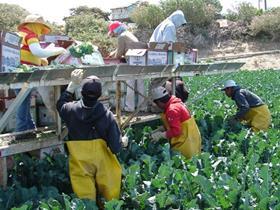
The food industry should prepare itself for an increase in contingent labour costs because of the number of people in employment is at the highest level since records began.
That's according to the Association of Labour Providers (ALP), which notes that with unemployment falling to 6.2 per cent, the lowest since 2008, and more people in work in the UK than ever before, labour providers are reporting the first signs of a tightening of labour supply in some areas of the country.
As the ALP releases its annual agency labour charge rate guidance, director David Camp said: “Labour providers fulfil a key supply chain security role in sourcing and supplying the high quality workforce that keeps the UK’s food and agriculture sectors working. For many years there has been a downward pressure on labour provider margins and this has now come to an end.
“With a tightening labour supply come increased costs in the form of additional recruitment expenditure and increased churn which add to the operating costs of labour providers. The law of supply and demand will prevail, and those labour providers that can source and supply a high quality, reliable workforce whilst complying with legal and ethical standards will charge an appropriate margin for their service.”
He added: “Those hiring businesses that pay unrealistically low rates for labour are knowingly or recklessly conniving in illegality, as these rates can only be achieved either through worker exploitation or tax evasion, or both. As a result, the rate paid by growers and food producers for labour is a key variable that the Gangmasters Licensing Authority monitors when looking for exploitation.”
The ALP has now issued all its members with The October 2014 Labour Provider Charge Rate Guidance, which includes the new national minimum wage rates, new Scottish agricultural wage rates, pensions auto-enrolment charges and other updates.
The ALP is the specialist trade association offering support and expert advice to organisations that provide and use workers within the food, agricultural and other GLA regulated sectors. Its members also include industrial labour providers.
Established in 2004, the ALP’s goal is for the provision of temporary labour to the UK food and agricultural sectors to be recognised as a model of good practice.



